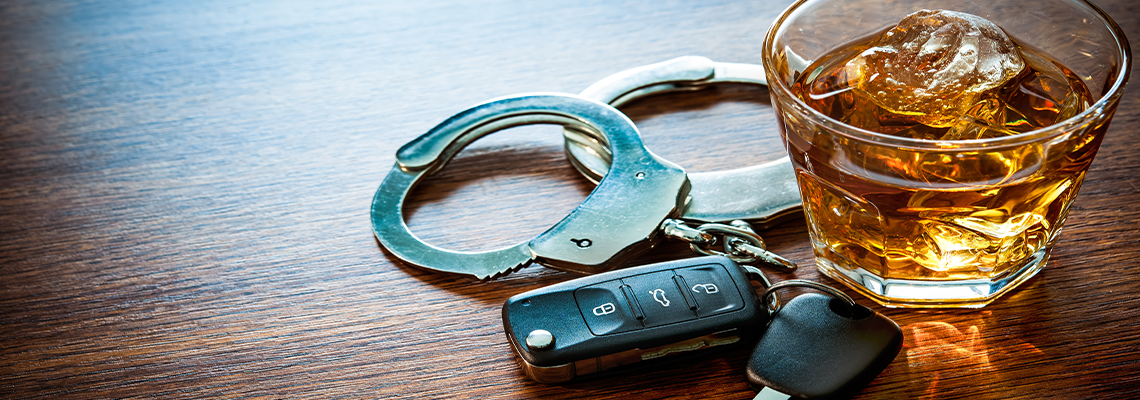
Will I Lose My License After Being Charged with DUI?
In California, many of us consider our driver’s licenses to be absolutely essential. They give us freedom of movement and help us carry out responsibilities, such as getting to and from work and school, or transporting our children. If you’ve been charged with driving under the influence (DUI) in California, you might wonder if you’ll lose your license. The short answer to this question is “yes.” It is often the first freedom lost if charged with DUI. How long will you lose your license for, and under what specific conditions? Answers to these questions will vary based on your particular circumstances.
If you have been charged with DUI—or refused to take a chemical test—and have had your license confiscated or suspended, you need to call an experienced criminal defense attorney. Reach out to Attorney Josh S. Brownstein at Brownstein Law Group, P.C. for strong representation in San Rafael, Marin County, Novato, Petaluma, San Francisco, and the rest of California.
What Are the Penalties for DUI in California?
Most DUIs in California are charged as misdemeanor offenses. Exceptions that result in felony charges include having four or more DUIs in a 10-year period and injuring or killing someone while operating a vehicle under the influence of alcohol or drugs.
A conviction for a misdemeanor first offense can result in up to six months in jail, a fine of $390 to $1,000, and suspension of your driver’s license for six months.
Convictions for a second DUI in a 10-year period are punishable by a minimum of 96 hours and a maximum of one year in jail, a fine of up to $1,000, and a two-year license suspension.
If convicted of a third misdemeanor DUI in 10 years, you may be sentenced to more jail time, heftier fines, and a three-year license suspension.
Processes & Procedures
When arrested for drunk driving, two procedures occur. One is the administrative process conducted by the Department of Motor Vehicles (DMV). The criminal proceeding on the DUI is a separate process that involves the prosecuting attorney and the court.
The DMV will suspend your driver’s license automatically if your chemical test results indicated a blood alcohol content (BAC) of .08 or greater (less for those under age 21 and those with commercial driver’s licenses) or if you refused to submit to a chemical test. That suspension is separate from any criminal prosecution. If you are acquitted of the criminal DUI charge in court, the DMV may consider reinstatement of your license. However, if your charges are reduced, for example, to a reckless driving charge, the DMV will likely maintain the administrative suspension of your driver’s license.
Is There a Way I Can Drive While My License Is Suspended?
The arresting law enforcement officer may confiscate your driver’s license and issue a temporary license that allows you to continue driving for 30 days. At the end of the 30 days, the suspension period ordered by the DMV begins and you may not drive unless you are granted limited driving privileges for the duration of the suspension. Losing your license poses a hardship to your ability to work, keep appointments, or run necessary errands. That is why a permit for limited driving privileges is referred to as a “hardship license.”
There are two types of hardship licenses. One allows you to drive anywhere if you have an interlock ignition device (IID) installed on your vehicle. Your vehicle will not start unless you blow into the device and it registers no alcohol or drugs. The second type will allow you to drive only to and from work or school and to and from the DUI treatment program you must register for and complete.
Only the IID option is available if you are charged with a second or third DUI within a 10-year period.
You have a right to request an administrative hearing by the DMV regarding the suspension of your driver’s license. You must file that request within 10 days of your receipt of the notice or order that your license has been suspended, so time is of the essence. Contact a skilled DUI defense attorney for help with this. If you can prove the suspension was not warranted, the DMV may reinstate your license and close the administrative proceeding. The criminal proceeding, however, is a separate action with separate penalties if convicted.
How Do I Get My Driver’s License Reinstated?
You must apply to the DMV and pay a fee to request that your driver’s license be reinstated. You cannot file until you have completed all punishments levied in the administrative and criminal actions. That would include completion of the duration of your license suspension and any jail sentence, community service, drug or alcohol treatment programs, payment of all fines, and proof of high-risk auto insurance.
Work With Experienced Advocacy
If all of this appears to be complex, you are correct. The procedures involving the administrative and criminal DUI processes are confusing. Complexity and confusion can mean that you fail to take advantage of the options you have to exonerate yourself, reduce your charges, obtain a hardship license, or have your license reinstated. Don’t risk it.
Attorney Josh S. Brownstein at the Brownstein Law Group, P.C. has represented hundreds of clients arrested for DUI in and around San Rafael, California. Trust an experienced team dedicated to your defense. Time is of the essence, so reach out today.
